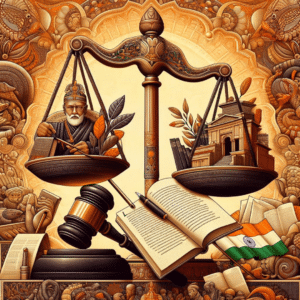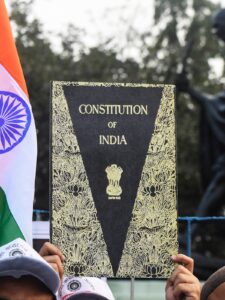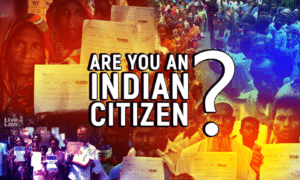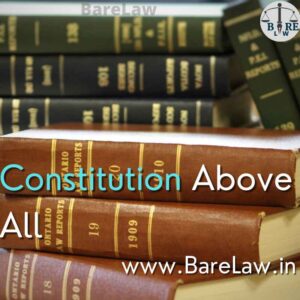Simplifying Your Life & Law | Legal Drafting services
AUTHORED BY- DINESH AWANA
Historic Background
Article 12 was presented by the Draft Constitution as article 7 yet some other time when B.R Ambedkar clarified the extent of this article and its importance for each resident whose rights could be encroached by any authority. Initially, the definition of state was treated as exhaustive and confined to the authorities or those which could be read as “ejusdem generis” within the authorities mention in article 12 itself. (Pradeep Kumar Biswas v. Indian Institute of Chemical Biology, 2002). The apex Court overruled Sabhajit Tiwary v union of India 1975 observed that assets and funds of CSIR though nominally owned by the society were in the ultimate analysis owned by the government and therefore it was stated under article 12.
Article 12
In this part, unless the context otherwise requires, the State includes the Government and Parliament of India and the Government and the Legislature of each of the States and all local or other authorities within the territory of India or under the control of the Government of India.
The definition of the state is inclusive and provides that STATE includes the following:
Government and Parliament of India i.e the Executive and Legislature of the Union
Government and Legislature of each State i.e the Executive and Legislature of the various States of India. The meaning of the term ‘ state’ and state government depends upon the manner and context of their usage in various provisions relating to disqualification leaves no doubt that ‘state’ refers to an entity described in the
first schedule of the constitution and ‘state government’ refers to the three wings of governance. Shrikant v. Vasantrao & ors 2006
All local or other authorities within the territory of India, or under the control of the Government of India. It is settled that the expression ‘under the control of the Government of India’ does not qualify the word ‘territory’; it qualifies ‘other authorities.
Other authorities
The meaning of the word authority as given in Webster’s dictionary is a “public administrative agency or corporation having quasi-government powers and authorized to administer a revenue-producing public enterprise. The composers of the constitution utilized the words ‘the state’ in a more extensive sense than what is perceived in the common or narrower sense. The growing component of the words ‘the state’ through legal translation should be inside the restrictions in any case the extension may go beyond what even the framers of article 12 may have thought of. Its interpretation has caused a decent measure of the issue, and legal assessment has gone through changes after some time.
The term ‘other authorities’ was first interpreted in the case of the University of Madras v. Shanta Bai AIR 1954 college of Madras was a statutory body formed under the University of Madras act. The inquiry that preceded the court was if the college is a state. It was held that the words “local or other authorities”
should be interpreted “ejusdem generis” can only mean authorities exercising government functions. It cannot exclude people, natural or juristic, such as a University unless it is maintained by the state. The supreme court found the judgment erroneous and rejected the view of the Madras High court in Ujjam Bai v. State of UP AIR 1962, and observed that the approach was restrictive in the above judgment. There is no common genus running through these named bodies nor can these bodies so placed in one single category on any rational basis. In Rajasthan State Electricity Board v. Mohanlal, Air 1967 Justice shah j laid stress on the functionality test rather than the Powers conferred by law. The electricity board was a state-aided institution but not wholly maintained by the state. The expression “authority” in its etymological sense means a body invested
with power to command or give an ultimate decision, or enforce obedience, or having a legal right to command and be obeyed. Authorities constitutional or statutory invested with power by law but not sharing the sovereign power do not fall within the expression “State” as defined in Art. 12. In Sukhdev Singh v. Bhagatram AIR, 1975 constitution Bench declared LIC, ONGC, and IFC would fall in the definition of the state as all of them were given birth by statutes. It cannot be denied that the socio-economic policy of the government has changed and the state is today shifting from trade and commercial activities and focusing
more on governance rather than business.
In RD Shetty v. International Airport Authority of India AIR 1979 SC 1628,
- The entire share capital held by the government.
- Where the financial assistance of the state is so much as to meet the almost entire expenditure of the corporation, it would afford some indication of the corporation being impregnated with governmental character.
- The corporation enjoys monopoly status which is conferred or protected by the state.
- The state exercises deep and pervasive control in corporations.
- The function of the corporation are of public importance and closely related to public functions.
- If the department of government is transferred to the corporation.
These tests were laid down by the apex court to determine whether the body is instrumentality or agency of state but were not a rigid set of principles so if the body falls within any of them it would be deemed as a state under article 12. If financial, functional, and administrative control of government is found the body is a state. If the body only discharges merely regulatory function irrespective of whether formed under a statute or not it would not serve to make the body a state (Pradeep Kumar Biswas v. Indi23an Institute of Chemical Biology 2002)
You may also like to read:
-
05 Jul 2021 OpinionMaratha Reservation: From Legislature of Precedent
-
16 Aug 2021 Know Your LawThe preamble to the Constitution of India
-
06 Aug 2021 Case BriefsCase Brief of Justice K.S.Puttaswamy (Retired). V. Union of India and Ors, 2017 (Right to Privacy - A Grandstand View)
-
19 Aug 2021 Know Your LawCitizenship laws in India
-
09 Sep 2021 Know Your LawCONCEPT OF LEGAL AID IN INDIA
-
12 Sep 2021 Know Your LawConstitution above all






